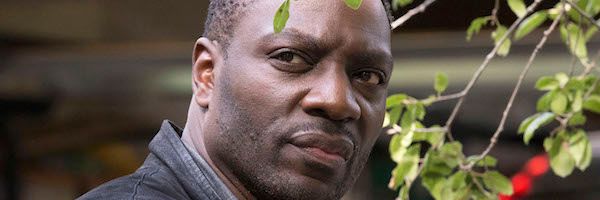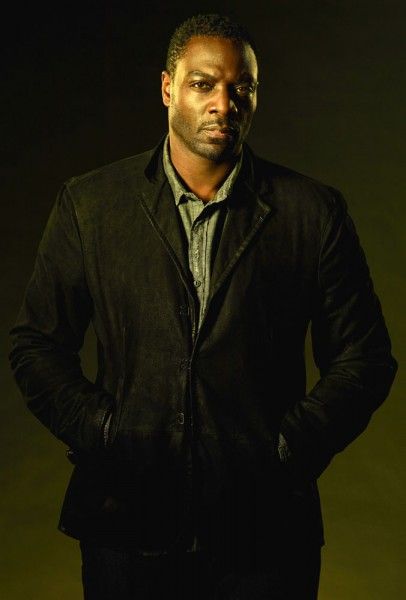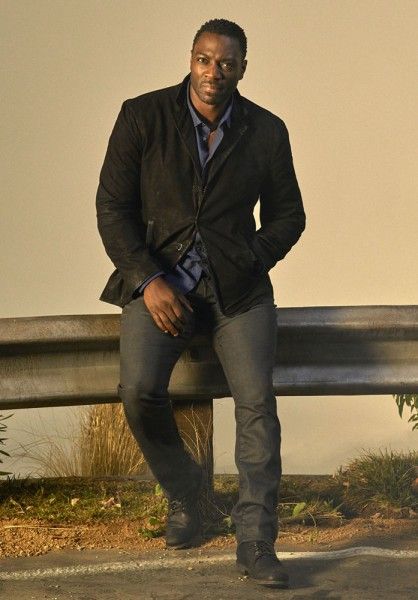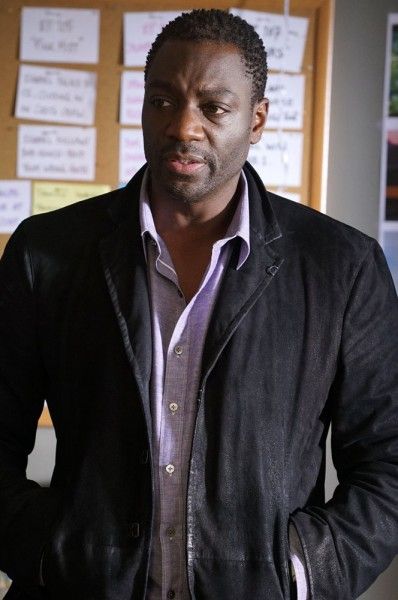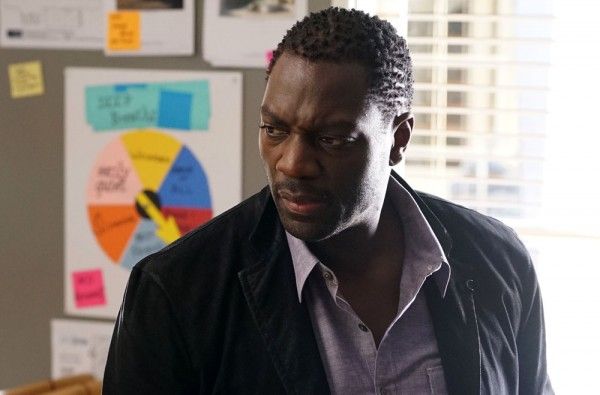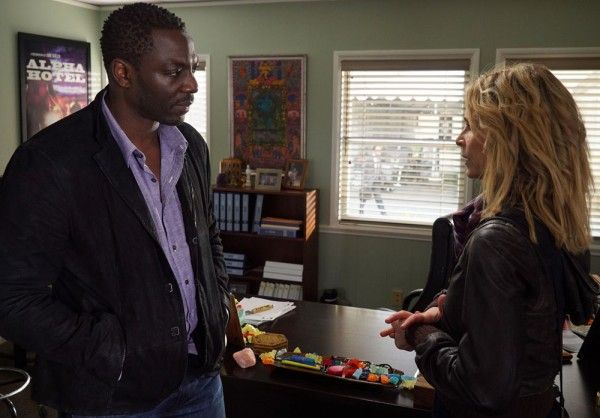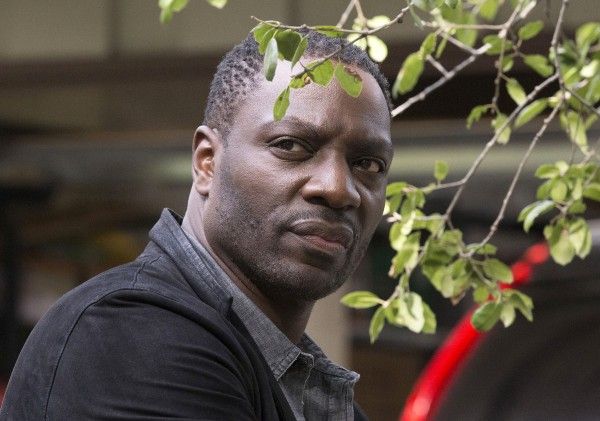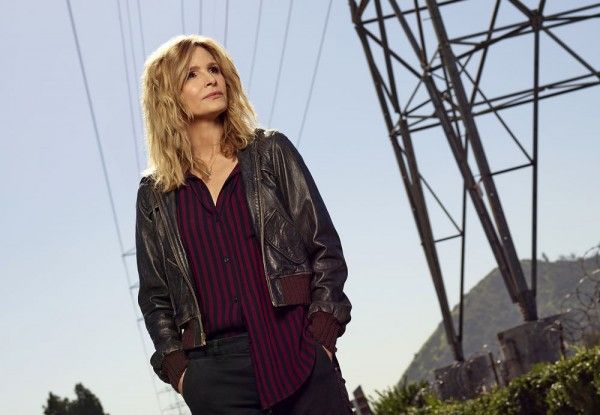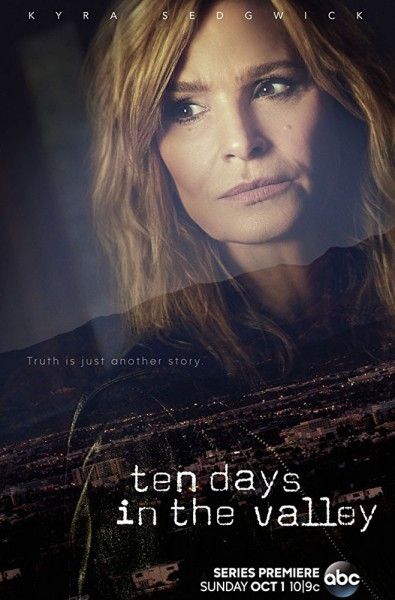The ABC series Ten Days in the Valley follows Jane Sadler (Kyra Sedgwick), an overworked television producer and single mother whose life is turned upside down when her young daughter goes missing in the middle of the night. When Detective John Bird (Adewale Akinnuoye-Agbaje) of the LAPD's Robbery-Homicide Division is brought in to run lead on the case, he quickly realizes that everyone in Jane's life – from her family to her co-workers to everyone in her inner circle – is a suspect.
During this 1-on-1 phone interview with Collider, actor Adewale Akinnuoye-Agbaje talked about the appeal of Ten Days in the Valley, why he wanted to pursue this particular role, how exploring a day per episode changes the storytelling, his approach to the character, and how everyone is a suspect. He also talked about making his directorial debut with Farming (which he also wrote and will star in) and why now was the right time for the project, producing the feature film Elizabeth Blue, and whether he’s heard anything concrete about Suicide Squad 2.
Collider: How did you come to Ten Days in the Valley?
ADEWALE AKINNUOYE-AGBAJE: My team and I had tracked the project quite early. At that point, the character that I play, Detective John Bird, who’s one of the top detectives of the Robbery-Homicide Division of the LAPD, was written as a white character. One of the reasons I tracked it and was very keen to meet on it was that there was texture and he was layered. Most of those roles that are written for a Caucasian are far more interesting and layered. The roles that were coming down the pilot channel didn’t stimulate me. I’d done those roles before and played that note before, and I just didn’t see them being multi-dimensional. So, I veered toward this because not only did it offer a different side to me that audiences haven’t seen, as an actor, but for me, as an artist, it was so layered.
Eventually, I got the chance to actually go in and do what we call a test screening with Kyra Sedgwick, and just on the basis of that screen test, the producers signed me up. I think it was really because of the chemistry, and not because of color or gender. That’s one of the reasons this show is different. They took a chance and went with what felt authentic and current, and with what felt interesting. That, for me, was a big plus. I’ve played many criminals, but I loved playing somebody on the right side of the law, who had a family and who had ethics. He’s very driven by truth and justice, to the point that he will break the law to acquire it, and cross lines between suspects and criminals and personal relationships.
And in terms of storyline, it’s always a treat to shoot in Los Angeles and at one of my favorite studios, Paramount, where my career began. I just felt it was an interesting premise to delve behind this Hollywood facade. Most people who work the grind of ordinary 9 to 5 jobs tend to think that people in this industry are pampered and have it easy, but here’s a show that dissects that and shows that there are problems that you can have, juggling your professional life with your family life, and the secrets, compromises and sacrifices that these characters are willing to go through, in order to get what they want.
For me, at the heart of it, the pace of it was like a thriller. It really pays homage to some of the films that I got in the business because of. It felt like a thriller that’s also a thinking man or woman’s drama. With every episode, a new suspect evolves or revolves, and I thought that was really interesting. You never quite get a beat on who’s done it because everybody has their problems, including the people investigating.
Does the storytelling feel different when each episode is one day?
AKINNUOYE-AGBAJE: It’s really great. For an actor, it’s really informative. The continuity and the consistency of the character is made easy. You don’t have to think about too much. In terms of prep, it helps you see deeper into the character, over that period, which is 10 days in the life of. It’s a more intense research into him or her. I just love that aspect because there was more meat on the bone for me to play with. And having been on this case for 10 days, he neglects his own family. We never really see that side of cops. It was just not procedural. He’s a man who’s trying to do his best in the job that he’s chosen, and not necessarily achieving that.
Detective Bird seems very calm and level-headed, for someone who works in Robbery-Homicide. Is that how he approaches people that he’s suspicious of, or is that just his nature?
AKINNUOYE-AGBAJE: That was a concerted decision made about how I was playing him. I wanted to move away from being procedural, just running around, pointing guns and intimidating people. Some of the inspiration came from Petrocelli, Columbo, Kojak, and the earlier versions. Bird disarms suspects with charm and makes them feel at ease. That’s how he’s able to get more information. So, it was a concerted decision to play him down and play him laid back, and to be more of the observer and disarm people. People don’t always expect the black detective to be the head of the Robbery-Homicide Division, or the top detective in it, and he’s definitely used to that. Rather than go against it to prove himself, he does the opposite and is laid back. He can learn more by people’s perceptions than trying to boost his own ego. He’s a people studier, and that’s probably what he enjoys about the job. That’s why he finds Jane, Kyra’s character, fascinating. He studies her and sees how complex she is, but at the very base level, she’s a decent human being. She’s just a bit screwed up, in how she goes about her decisions and her priorities. He’s a guy that knows life, and when you have real experience in life, you know that the best way to get stuff is not kicking down doors. Sometimes it’s sitting on the back step, whistling a tune and waiting to see who comes out. He just knows that it’s not about necessarily being right. He’s about the truth. That’s a very subtle distinction. When you have that as your base, it makes you behave very differently.
When you started working on this, did you know what the endpoint of the mystery would be, or did you learn about that as you were making the show?
AKINNUOYE-AGBAJE: I was learning as I was going along, actually. I had a read on a few things, up to maybe Episode 5, but I certainly didn’t know what was going to happen and who was really going to be the culprit, by the end. I just thought it was really cool, how it unfolded, to be honest with you. It made me suspect absolutely everybody. The show starts off with the typical premise, where you suspect the husband, but it unfolds into something completely different, and not knowing helped me.
You’ll be making your directorial debut with Farming, from a script that you also wrote and a story that is based on your own life. What made you want to write it and why was now the right time for you to tackle bringing that to the big screen?
AKINNUOYE-AGBAJE: What made me want to write it was the fact that I couldn’t sleep. One day, I just sat up and wrote, and after a couple of hours, the pages amassed to about 500 and I couldn’t stop. My partner, at the time, read it and she was the one who actually said, “This is really good.” I’d been working with Tom Fontana on Oz and I sent a manuscript draft to him, and he suggested that I send it to Sundance, which I did, and they accepted it, even though it was volumous, because they were so moved by the writing. I went in there and honed it to a 100-page script, and I actually won the Annenberg Award, that year. And then, Michael London came on, as a producer. It was a wonderful journey. That’s what made me write it, but the process has taken me a considerable amount of time. That was 12 years ago. The reason for why now is actually a couple of reasons. Timing is everything. The elements and constellations have come together at the right time, but also, the story has grown with me. It evolved with my own growth, and it’s grown to a point where it’s the right version for me to tell. Also, with what’s occurring in life today, there are many, many parallels in it. For all of those reasons, that’s why it’s probably being made today.
Does it feel very overwhelming to be making your directorial debut with something that is also so personal, or are you committed to it because of that?
AKINNUOYE-AGBAJE: Overwhelming is an understatement, and not merely because of the volume of work and responsibility that’s involved with directing, writing and producing a project. It’s also because of the emotional attachment that you have, and the responsibility to keep it true and authentic. But I have to say that psychologically and emotionally, I’ve never been in better shape and prepared to tell this story than I am now. So, it’s now or never. There was a point in my life where I was holding everything back to do this, but I must move on with my life. To do that, I needed to give birth to this story, so I’m just glad, from that perspective.
You have a terrific cast assembled, with Kate Beckinsale, Gugu Mbatha-Raw and Damson Idris, and you’re in the film, yourself. How exciting is it to see who you’ve been able to assemble?
AKINNUOYE-AGBAJE: I’ve been very fortunate. People have really responded to the material. I managed to get most of my first wishes on my wish list of cast. I’m excited and very honored that they’d take a huge pay cut to come be a part of this project.
When it is such a personal story, is the casting extra challenging, or did you have a very clear idea of who you wanted for each role?
AKINNUOYE-AGBAJE: As part of my own evolution with it, there is a certain amount of detachment now. I know that I’m really creating an essence of that world. I’m not mimicking it. It’s not a docu-drama, it’s a film. And as a film, I’m taking creative license with locations and have amalgamated characters into one when, in real life, there may have been several. I’m very aware of that responsibility. Casting somebody like Kate Beckinsale in the lead, who’s a phenomenal actress but who people wouldn’t readily see as coming from that world, she will surprise people. Not only does she have the gravitas and the skill to do it, but she also has the relatability that I wanted, in order to take people into the labyrinth of complexity that her character inhabits, and that may not have been present in the original character. It’s the essence of the world and the people that I’m capturing.
We didn’t get enough of you or Killer Croc in Suicide Squad. Have you heard anything yet about Suicide Squad 2 and whether Killer Croc will return?
AKINNUOYE-AGBAJE: You know what? I have to be frank with you, I know as much as what you’ve heard on the net. My focus is entirely on directing, at this juncture. I had a wonderful time doing the first one. I don’t know what’s going to happen with the next one. Quite frankly, I’m very happy with the way my career is going, regardless. I’m good. But, we’ll see what happens. I’ve heard whispers, but there’s nothing to confirm.
Now that you’re one of these multi-hyphenate people, who’s an actor, producer, director and writer, you have a lot of things on your plate. What made you want to do Elizabeth Blue and get more involved with that as a producer, as well?
AKINNUOYE-AGBAJE: It’s wonderful to do these great blockbusters and bigger pictures, but my heart is always with true stories. This was a beautiful story about a schizophrenic and his partner, and it was directed by a functioning schizophrenic and was autobiographical. It was a subject matter that not only did I not know much about, but it’s one that people should be aware of because it probably touches on most of us, far more than we would care to think. But, it was the beauty of the story. It’s the type of story we need to hear in the world today. When you have terrorism and racism, and all of these -isms, here’s a story about not giving up on somebody you really love, no matter their suffering. It shows what true love is about. I just really wanted to support Vincent Sabella, who was a first-time director and who did a lovely job. I was very proud of getting behind him to support the story, but also the message and making people aware of that kind of condition.
Ten Days in the Valley airs on Sunday nights on ABC.

